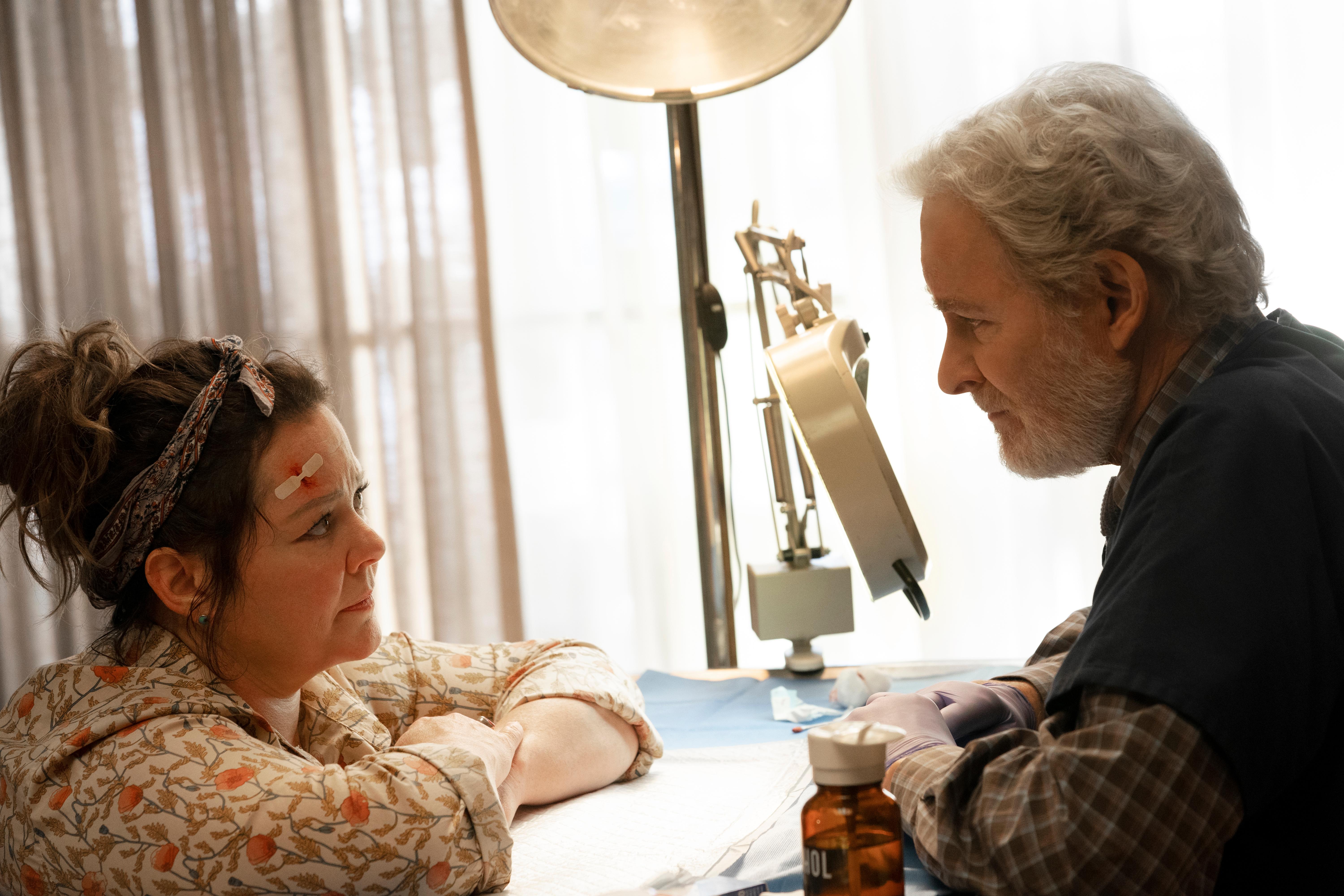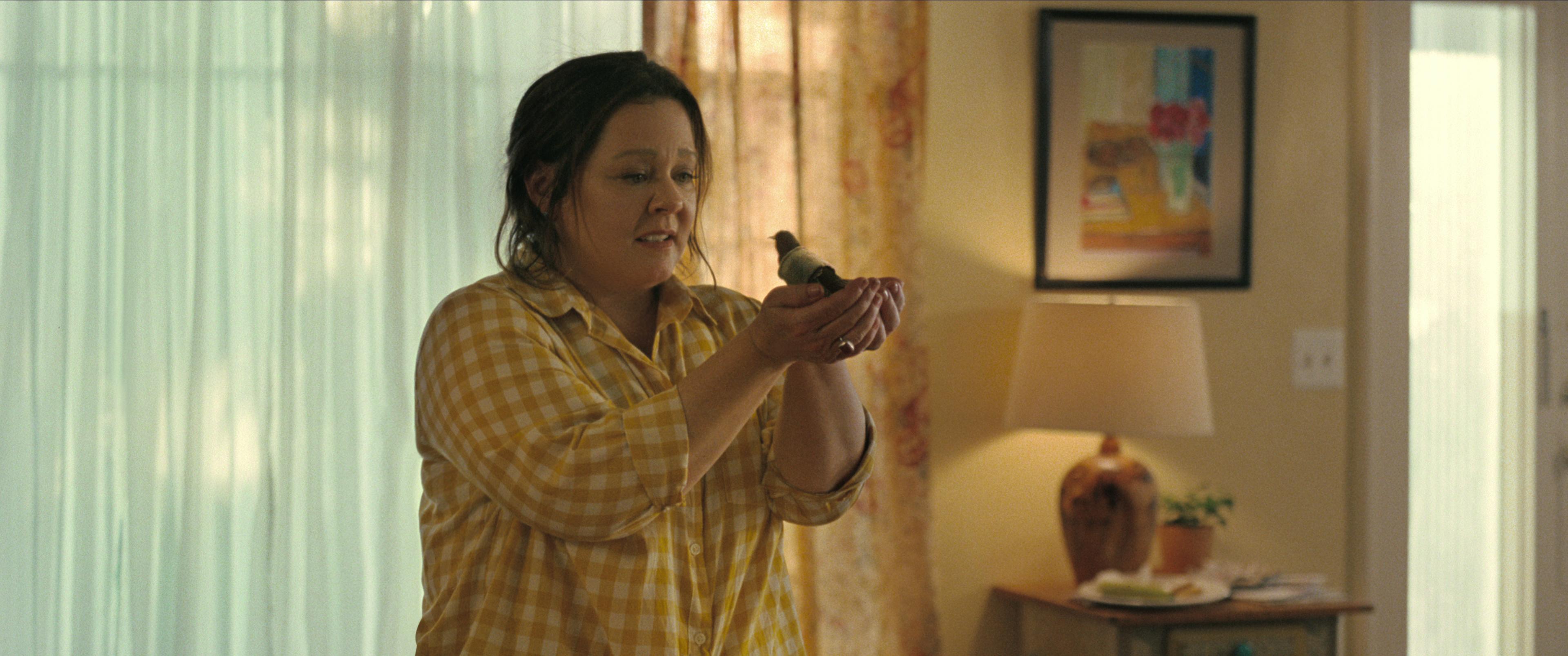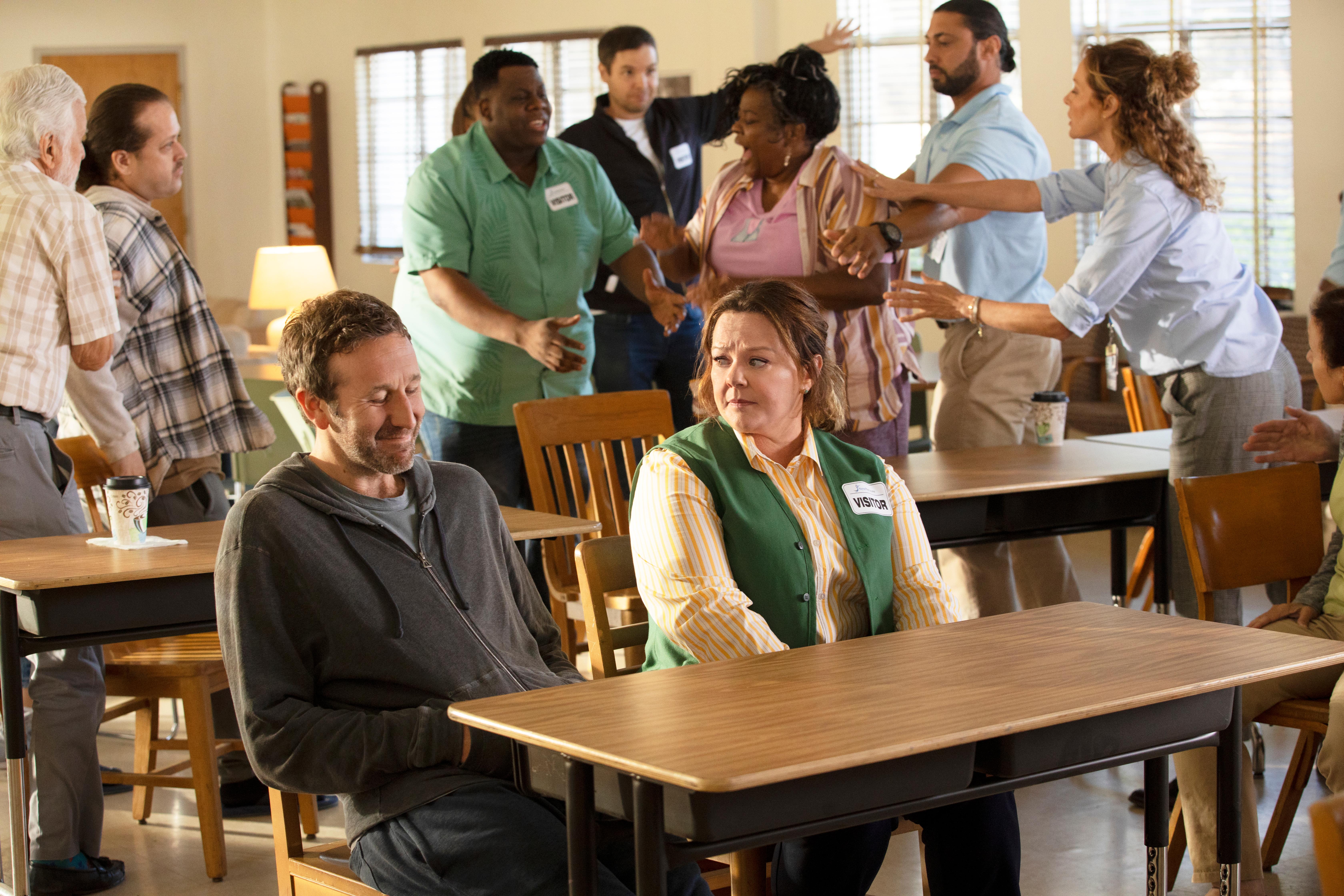'The Starling' Review: A Music Video, Plus Some Acting
Published Sept. 24 2021, 8:00 a.m. ET

The Starling once again pairs Melissa McCarthy with Director Theodore Melfi. The two previously worked together on 2014’s St. Vincent, which subtly balanced humor and heart. Unfortunately, the same cannot be said for the duo’s newest Netflix dramedy.
The Starling features McCarthy and Chris O’Dowd as Lilly and Jack Maynard, a couple fractured following the loss of their young daughter to SIDS. Lilly comes to terms with her loss while battling a small bird for dominion over her garden. At the same time, Jack receives psychological treatment at a mental health facility an hour out of town.
The Starling
Our Rating
'The Starling' underuses its leads in a sappy story about grief.
Premiere: September 17, 2021
Where to Watch: Netflix
Director: Theodore Melfi
Cast: Melissa McCarthy, Chris O'Dowd, Kevin Kline, Timothy Olyphant, Loretta Devine
Writer: Matt Harris
1 hour and 43 minutes, PG-13
While the premise should have elicited a moving story about life after loss, The Starling's sappy tone and over-the-top metaphorical approach strip it of any sincerity it could have manifested. Lilly works in a dying vegetable garden, and a bird keeps attacking her as she aims to bring life back to her land. The small starling — after which the film is so aptly named — nosedives into Lilly’s head each time she tries to rebuild her garden before confronting her loss. (Enter subpar CGI effects.)
McCarthy does everything in her power to elevate this film above the realm of mundane melodrama. She boasts nuanced facial expressions that are introspective and sincere. Her distraught eyes and downward-pointing lips convey a forced stoicism that veils her pain and uncertainty. It’s evident that Lilly harbors great fear for the future yet also an unrelenting sense of hope. Her tears — rarely straying into full meltdown territory — relay a self-preserving tendency. She must resort to anger over despair to remain “the strong one.” Unfortunately, jarring needle drops and abrupt jumps between comedy and drama plague The Starling and detract from the power in McCarthy’s performance.

Featuring original songs (at max volume) by Judah & the Lion, The Lumineers, Nate Ruess, and Brandi Carlile, the film often feels like an extended music video in which the acting underscores the music, as opposed to the reverse. The lyrics are unapologetically blunt— revealing the precise preoccupations tormenting the leads at each moment in their grieving process. The soundtrack supplants the story, stepping in where emotional exposés and moving dialogue should prevail. Melfi eschews moments where silence and stillness would speak volumes or where conversations could foster understanding in favor of ceremonial displays set to the sound of modern pop-rock. Lilly emptying her daughter's room should be heartbreaking, but, instead, it plays like a commercial for a moving company.
The film’s one saving grace is the on-screen chemistry between McCarthy and Kevin Kline, who plays Larry, a former esteemed therapist turned veterinarian. Their dynamic legitimizes the film’s account of grief. Larry — who has found a new career seemingly as a result of imposter syndrome — helps Lilly overcome her loss. Their conversations ground the film and add a sense of reality to an otherwise improbable tale about a gardener and a relentless bird. While other jumps from McCarthy-esque comedic shticks to moments of depression feel disjointed, the transitions between humor and sorrow feel more natural between Lilly and Larry.
The exchanges between them reveal that laughter and grief are incredibly reciprocal — that sorrow and spirit are not mutually exclusive. In these brief moments, the weight of loss comes through. The difficult path to emotional stability is ever-so-briefly palpable.

As for O’Dowd, his performance is just fine. He plays grief with honesty and simplicity — no fanfare but also not much depth. His character is a former schoolteacher who (of course) cannot imagine being around children once again, and this plot device serves to emphasize his doubt about returning to reality, which is worthy of an eye roll. His presence feels necessary but never significant. The supporting cast members — played by the likes of Timothy Olyphant, Skyler Gisondo, and Loretta Devine) — either operate as comedic relief or merely highlight one of the lead’s noteworthy revelations. Actors capable of heightening the film are wasted on punchlines and platitudes.
Though The Starling fails as both a drama and a comedy, it somewhat succeeds as a feel-good movie sheerly because of McCarthy and Kline’s performances. However, they both deserved more. The heavy-handed metaphors and sloppily constructed narrative, which relies mostly on tropes, wholly undercut their underused capabilities.